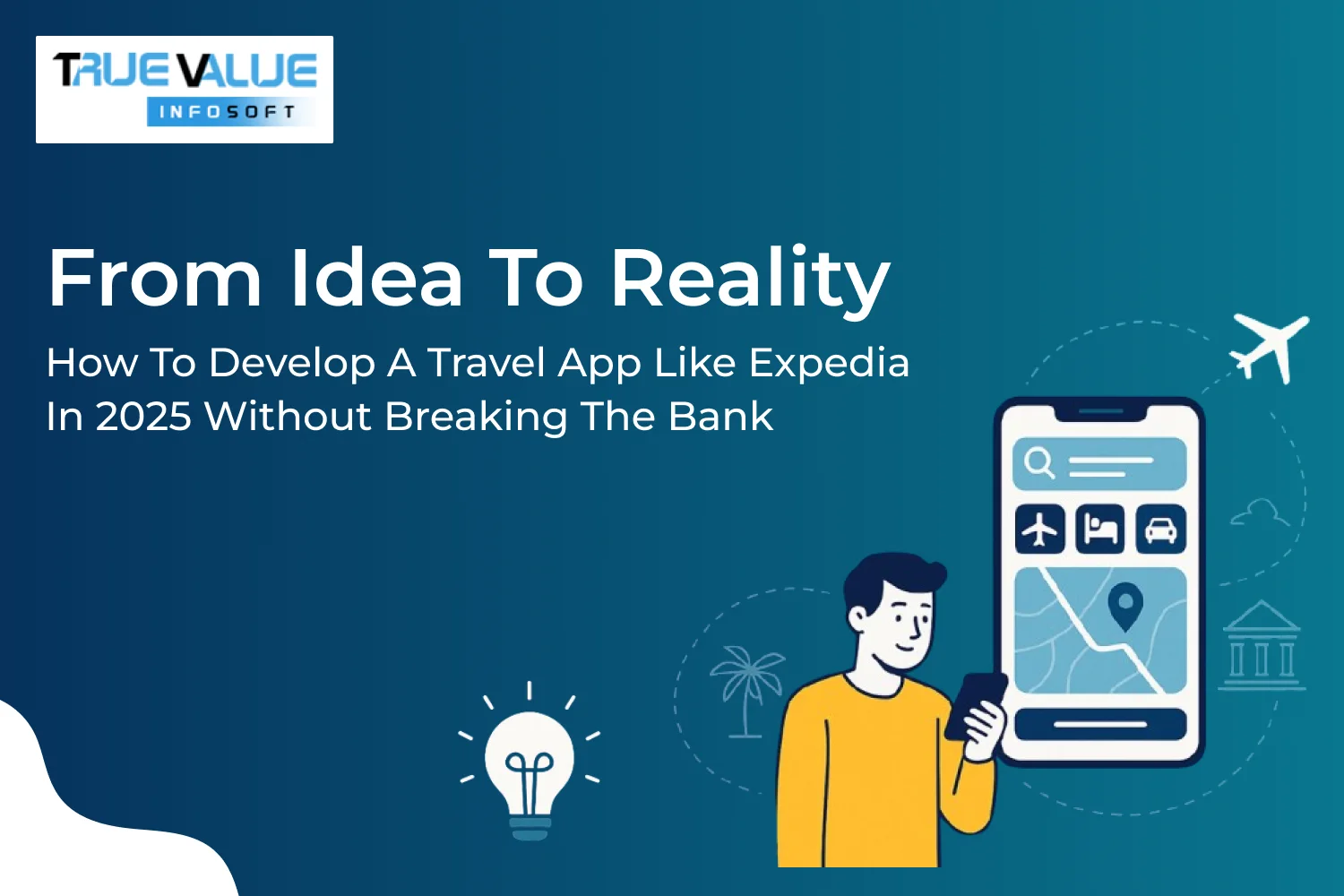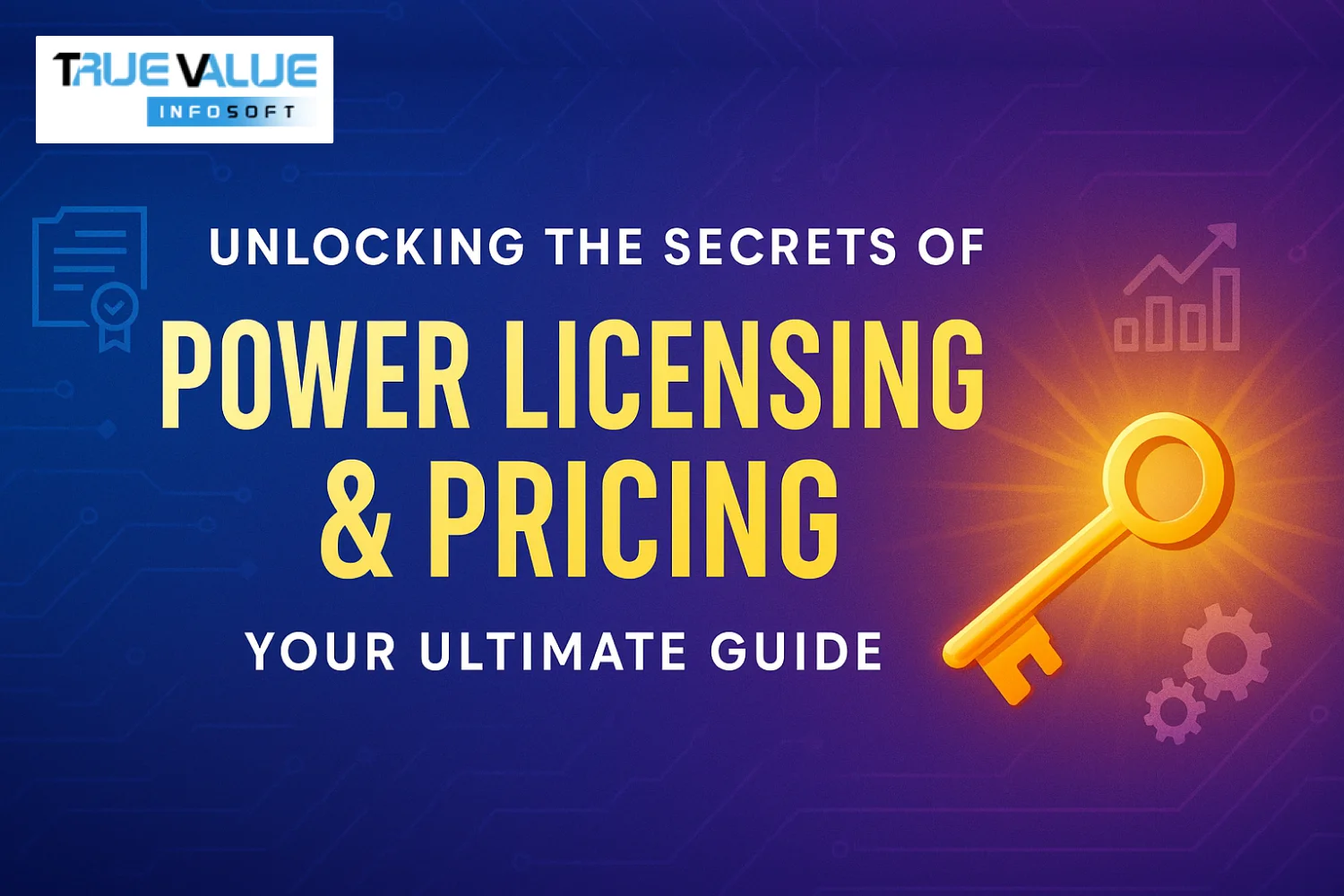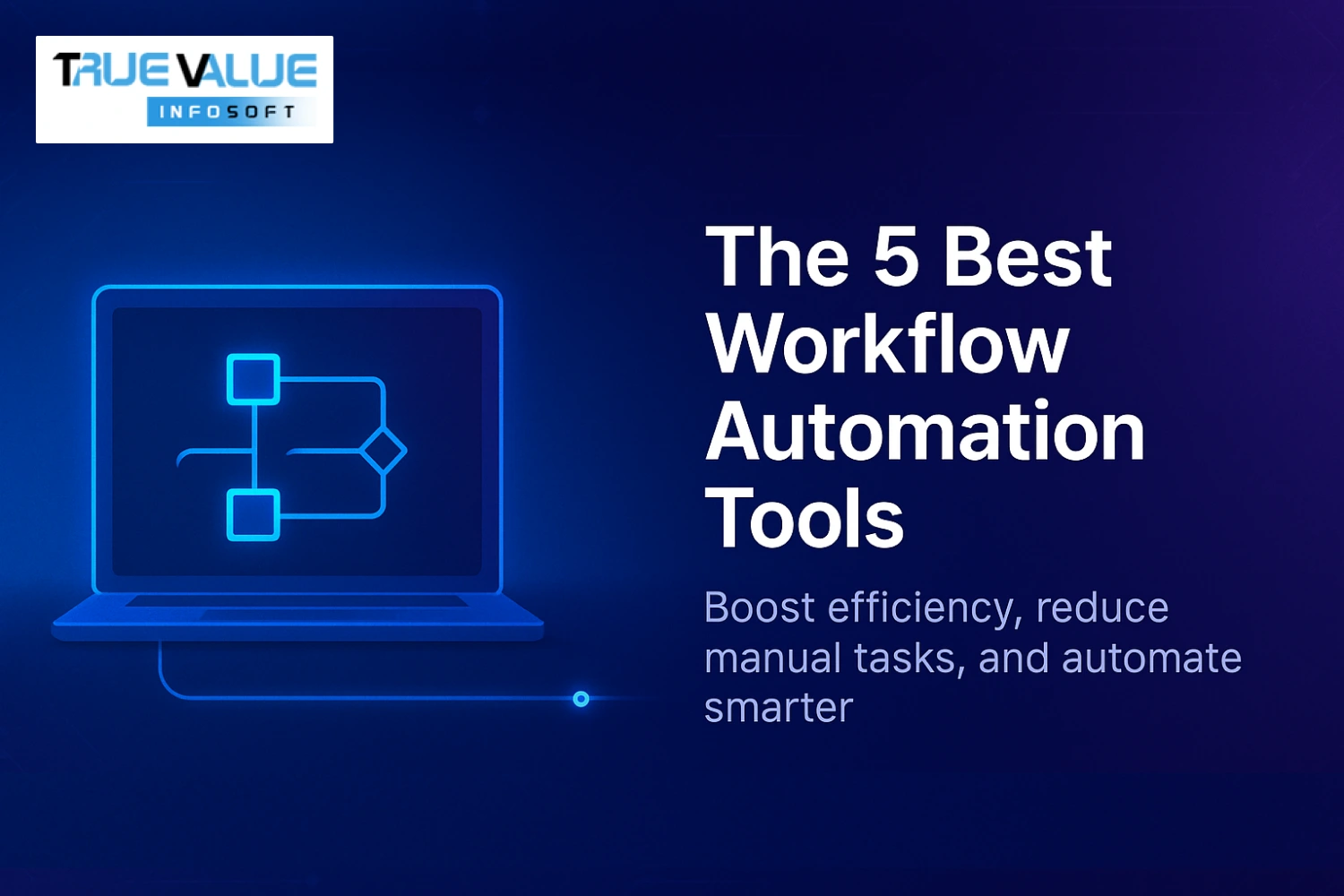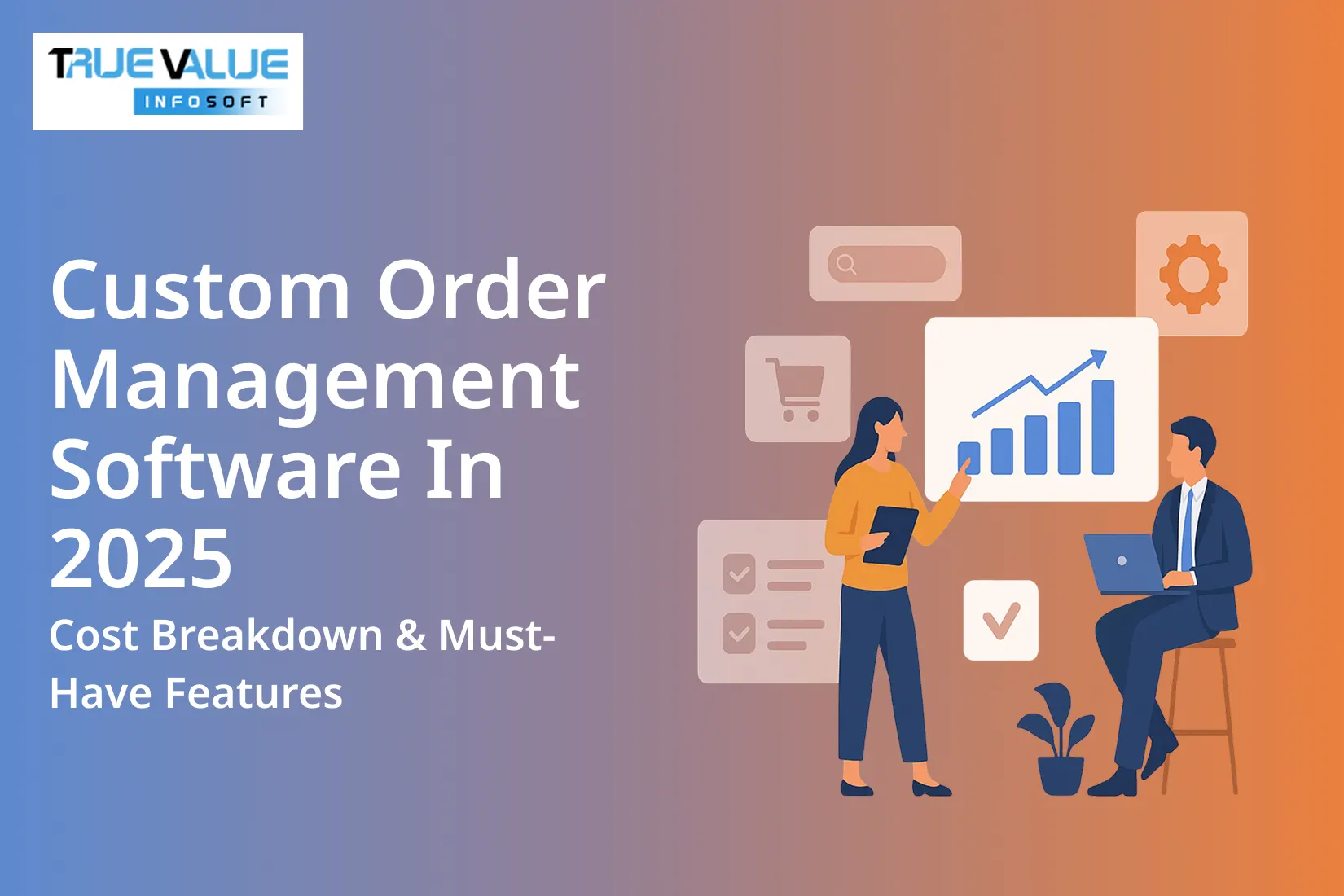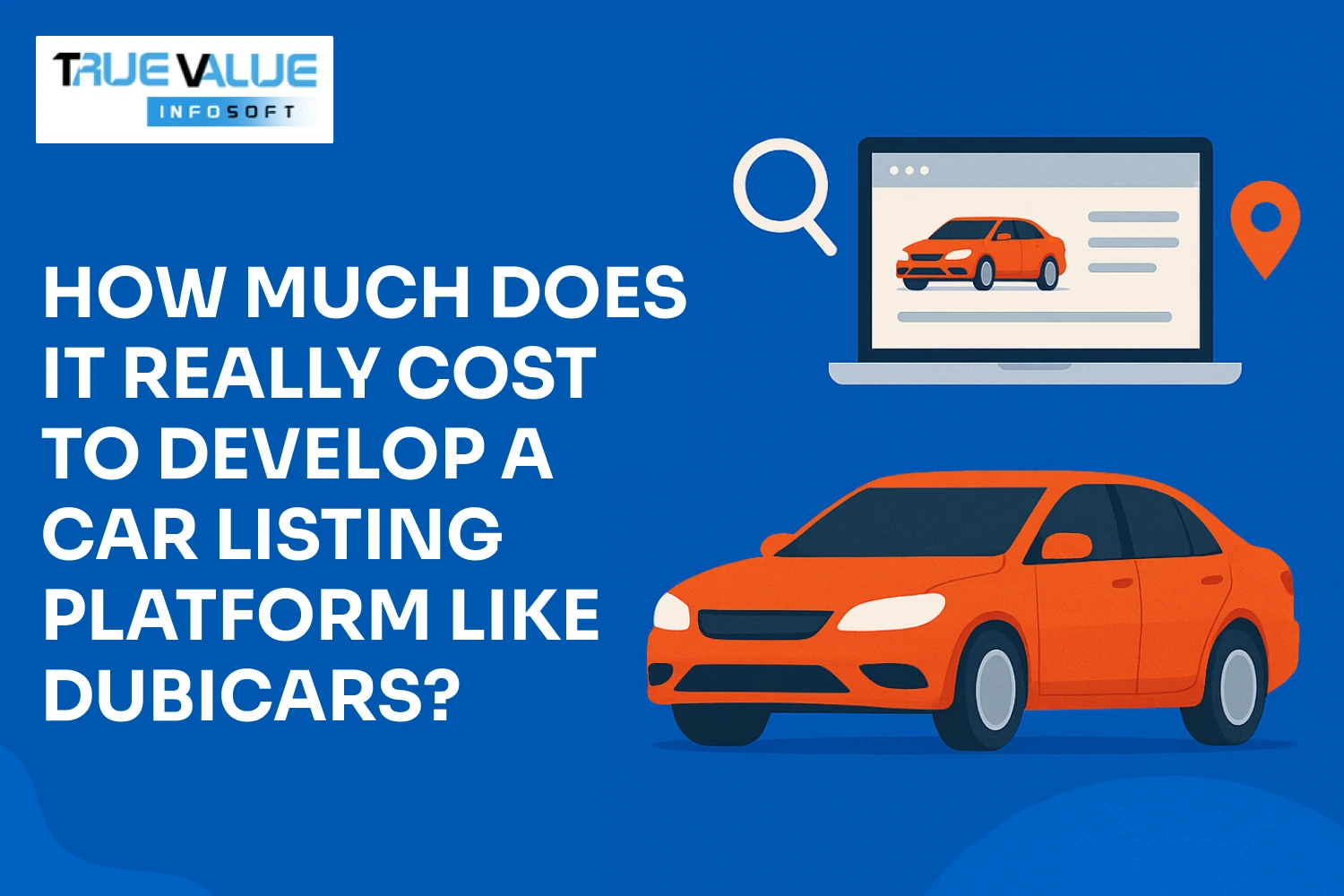Introduction
Looking to develop a travel app like Expedia but worried about the costs and complexities involved? You're not alone. In today’s digital-first world, travel apps have become essential tools for millions of travelers worldwide, offering convenience, competitive pricing, and personalized experiences right at their fingertips. But how can a startup or a growing business create a robust, feature-rich travel app without burning through a massive budget? That’s where careful planning, the right technology choices, and an experienced development partner come into play.
True Value Infosoft, a leading IT company known for delivering cutting-edge app development solutions, understands the challenges faced by businesses in this competitive industry. With expertise in travel app development and a commitment to cost-effective innovation, True Value Infosoft offers tailored strategies to help turn your travel app idea into reality without breaking the bank. This guide will walk you through the entire process, from conceptualizing your app’s core features to deploying and maintaining it in 2025’s dynamic tech landscape. Whether you’re aiming to rival Expedia or carve out a niche in travel booking, this comprehensive roadmap will empower you to build a high-quality app that meets user expectations and budget constraints.
Understanding the Travel App Market in 2025
Before diving into development, it’s crucial to grasp the current landscape of travel technology and consumer expectations. The post-pandemic travel boom has spurred demand for apps that not only offer booking functionalities but also prioritize user experience, personalization, and real-time support.
Key market trends include:
- Personalized travel recommendations: AI-driven suggestions based on user preferences and past behaviors.
- Integrated booking options: Flights, hotels, experiences, and car rentals in one unified platform.
- Mobile-first design: A smooth, responsive interface optimized for smartphones and tablets.
- Sustainability filters: Eco-friendly travel options are increasingly popular among conscious travelers.
- Contactless and digital payments: Fast and secure payment gateways with multiple currency support.
- Augmented reality (AR) features: Virtual tours and location-based experiences enhancing trip planning.
- 24/7 customer service: Chatbots and AI-powered assistants for immediate query resolution.
Understanding these trends helps you shape your app’s feature set to meet user demands and compete effectively.
Defining Your Travel App’s Unique Value Proposition (UVP)
The travel app market is highly competitive, so identifying what makes your app unique is essential. Expedia excels because it combines an extensive inventory with competitive prices and a user-friendly interface. However, you can carve your niche by focusing on:
- Specialized travel segments: Target luxury travel, budget backpackers, adventure seekers, or family vacations.
- Local experiences and offbeat destinations: Offer curated local tours and hidden gems beyond mainstream options.
- Community-driven content: Enable users to share reviews, photos, and travel tips.
- Seamless multi-modal transportation: Integrate not only flights and hotels but also public transit, rideshares, and bike rentals.
- Flexible cancellation and refund policies: An increasingly important feature in uncertain times.
Clearly defining your UVP will guide design decisions, marketing strategies, and technology choices.
Essential Features to Build a Travel App Like Expedia
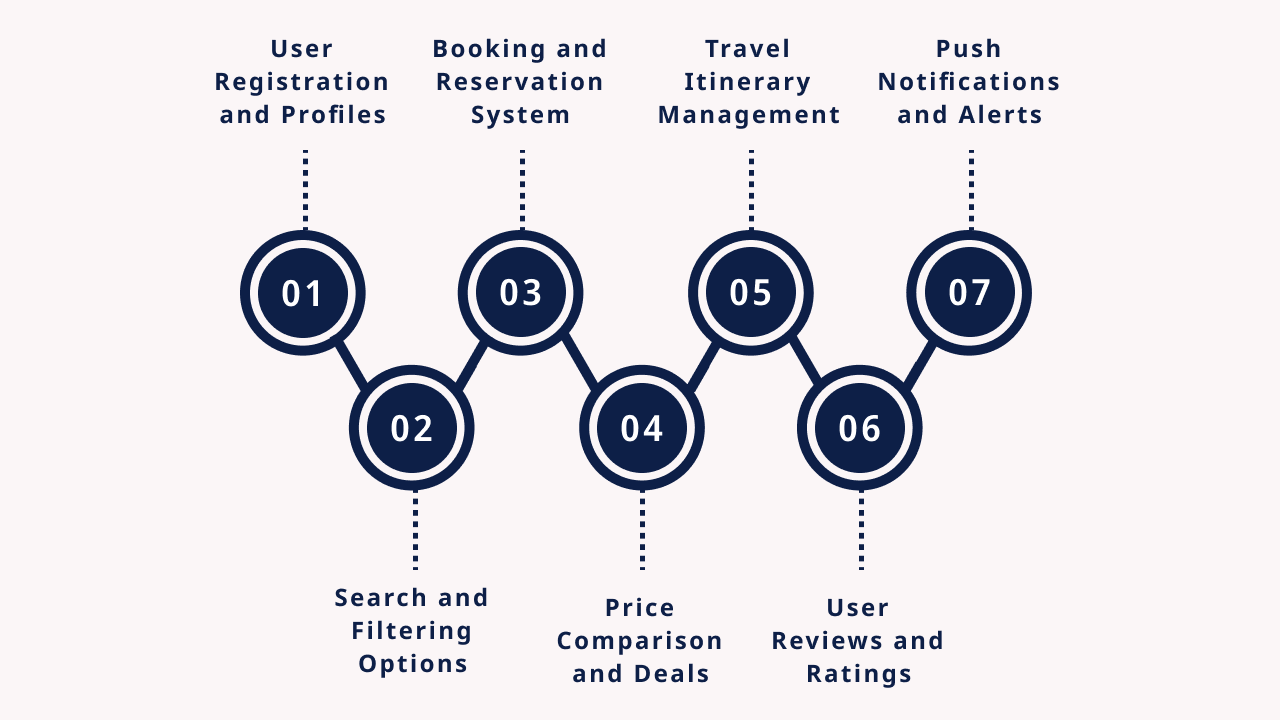
Building a travel app involves integrating multiple complex components while ensuring a seamless user experience. Here are core features your app must include to compete with Expedia:
- User Registration and Profiles
- Simple signup via email, phone, or social media.
- User profiles to store preferences, booking history, and saved trips.
- Search and Filtering Options
- Powerful search engine for flights, hotels, cars, and experiences.
- Filters based on price, rating, location, amenities, dates, and sustainability.
- Booking and Reservation System
- Real-time availability updates and inventory management.
- Secure checkout with multiple payment gateways.
- Booking confirmations and e-tickets.
- Price Comparison and Deals
- Compare prices from different providers.
- Access to exclusive discounts, flash sales, and promotional offers.
- Travel Itinerary Management
- Consolidate flight, hotel, and activity bookings in one itinerary.
- Send reminders, alerts, and updates on gate changes or delays.
- User Reviews and Ratings
- Allow customers to rate services and leave feedback.
- Display aggregated scores to guide booking decisions.
- Push Notifications and Alerts
- Notify users of booking confirmations, price drops, and travel advisories.
- Personalized suggestions and travel tips.
Choosing the Right Technology Stack for 2025
Selecting your technology stack is one of the most critical decisions impacting development cost, time, scalability, and maintenance. In 2025, technology options have matured, offering powerful yet cost-effective solutions.
Frontend Development
- Cross-platform frameworks like Flutter and React Native enable building Android and iOS apps from a single codebase, dramatically reducing development time and costs.
- For web interfaces, React.js or Vue.js provide responsive, dynamic user experiences.
Backend Development
- Use scalable cloud-based backend services such as Node.js or Python (Django/Flask).
- Leverage Serverless architecture (AWS Lambda, Google Cloud Functions) for cost-efficient scaling.
- Use GraphQL or REST APIs for smooth communication between frontend and backend.
Database
- Relational databases like PostgreSQL or MySQL for structured data.
- NoSQL options like MongoDB for flexible storage of user-generated content and reviews.
Third-Party APIs and Integrations
- Flight data: Integrate with providers like Amadeus, Skyscanner, or Travelport.
- Hotel bookings: Use APIs from Booking.com, Expedia Affiliate Network, or Hotelbeds.
- Payment gateways: Incorporate Stripe, PayPal, Razorpay, or Square for secure payments.
- Maps and AR: Use Google Maps SDK and ARKit/ARCore for interactive features.
- Chatbots: Deploy AI chatbots using Dialogflow, IBM Watson, or Microsoft Bot Framework.
Cloud Infrastructure
- Use cloud platforms like AWS, Google Cloud, or Microsoft Azure for hosting, storage, and CDN services.
- Benefits include pay-as-you-go pricing, high availability, and global data centers.
Development Methodology and Team Structure
To build your app efficiently and cost-effectively, adopting Agile development methodologies is highly recommended. Agile emphasizes iterative development, continuous feedback, and adaptability, allowing you to deliver a Minimum Viable Product (MVP) quickly and improve it over time based on user insights.
Suggested team composition:
- Product Manager: Oversees project goals, timelines, and user needs.
- UI/UX Designer: Crafts intuitive, engaging interfaces.
- Frontend Developer(s): Builds the mobile and web app interfaces.
- Backend Developer(s): Develops server-side logic and API integrations.
- QA Tester: Ensures app quality through testing.
- DevOps Engineer: Manages cloud infrastructure and deployment.
- Marketing Specialist: Prepares app launch and promotion strategies.
For startups on a tight budget, you can start with a small core team and gradually scale. Alternatively, outsourcing some development phases or hiring freelancers for specific tasks can optimize costs.
Building the Minimum Viable Product (MVP)
Launching a full-fledged Expedia clone from day one can be costly and time-consuming. Instead, focus on developing an MVP with essential features that demonstrate value and attract early users. This approach lets you:
- Validate market demand.
- Collect user feedback.
- Avoid over-engineering.
- Manage budget and resources better.
Your MVP should include:
- User registration/login.
- Basic search and booking for flights or hotels.
- Booking confirmation and payment integration.
- User profile management.
- Simple itinerary overview.
Once your MVP gains traction, you can incrementally add advanced features like price comparison, AR tours, chatbots, and loyalty programs.
Cost-Effective Development Strategies
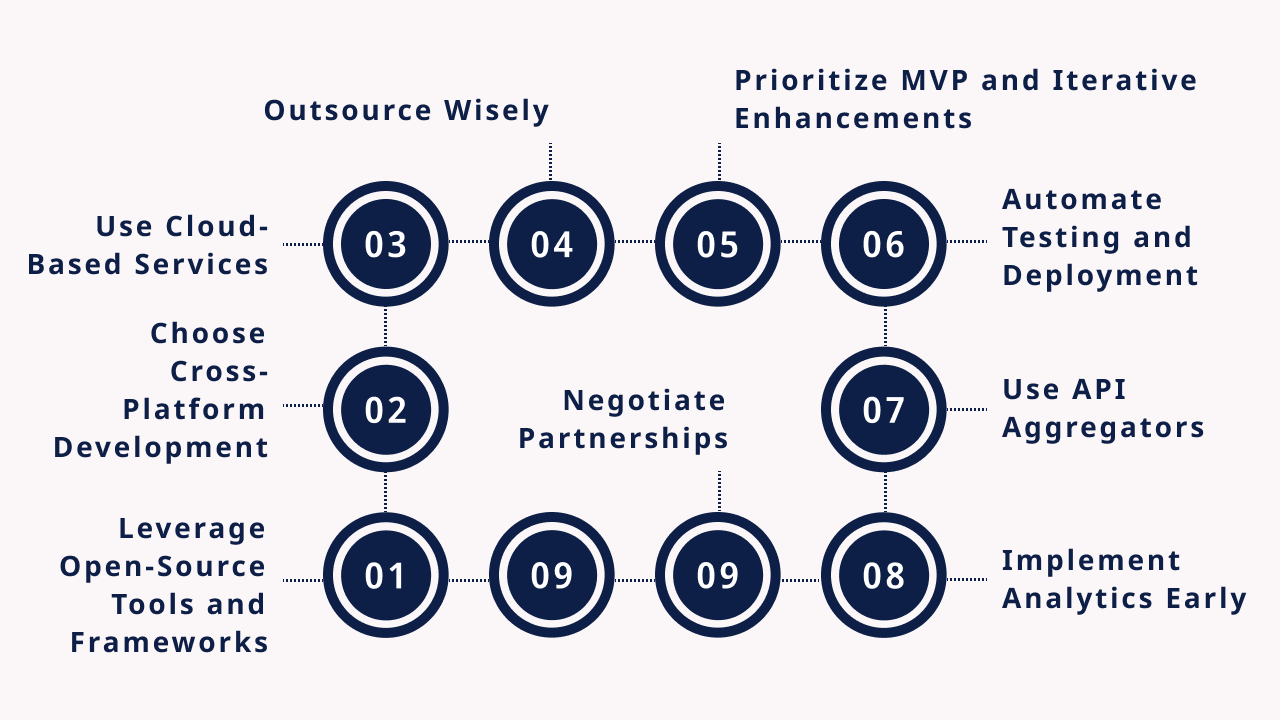
Developing a travel app like Expedia without breaking the bank requires smart budgeting and resource management. Here are practical tips to control expenses:
- Leverage Open-Source Tools and Frameworks
- Use open-source SDKs, UI kits, and libraries to speed up development and reduce licensing fees.
- Choose Cross-Platform Development
- Instead of building separate native apps for iOS and Android, use cross-platform frameworks to save time and cost.
- Use Cloud-Based Services
- Cloud infrastructure with pay-as-you-go pricing avoids upfront hardware costs and scales with demand.
- Outsource Wisely
- Hire reputable offshore developers or agencies with a track record in travel apps.
- Alternatively, consider freelancers for specialized tasks like UI design or QA.
- Prioritize MVP and Iterative Enhancements
- Focus on core features initially, then add more complex functionalities based on user feedback.
- Automate Testing and Deployment
- Continuous Integration/Continuous Deployment (CI/CD) pipelines reduce manual errors and speed releases.
- Use API Aggregators
- Instead of negotiating directly with multiple travel service providers, use API aggregators that bundle flight, hotel, and car rental data.
- Implement Analytics Early
- Track user behavior to make data-driven improvements and avoid wasted effort.
- Negotiate Partnerships
- Collaborate with travel providers, tourism boards, or local experience vendors for better pricing and exclusive deals.
Navigating Regulatory and Compliance Challenges
Travel apps handle sensitive user data and financial transactions, so compliance with data protection laws is mandatory. Key regulations include:
- GDPR (General Data Protection Regulation) for users in the EU.
- CCPA (California Consumer Privacy Act) in the US.
- PCI DSS (Payment Card Industry Data Security Standard) for handling credit card information.
- Local travel regulations regarding cancellations, refunds, and consumer rights.
Ensure your app has:
- Clear privacy policies and user consent mechanisms.
- Secure data storage and encryption.
- Transparent payment and refund procedures.
- Accessible customer support channels.
Marketing Your Travel App on a Budget
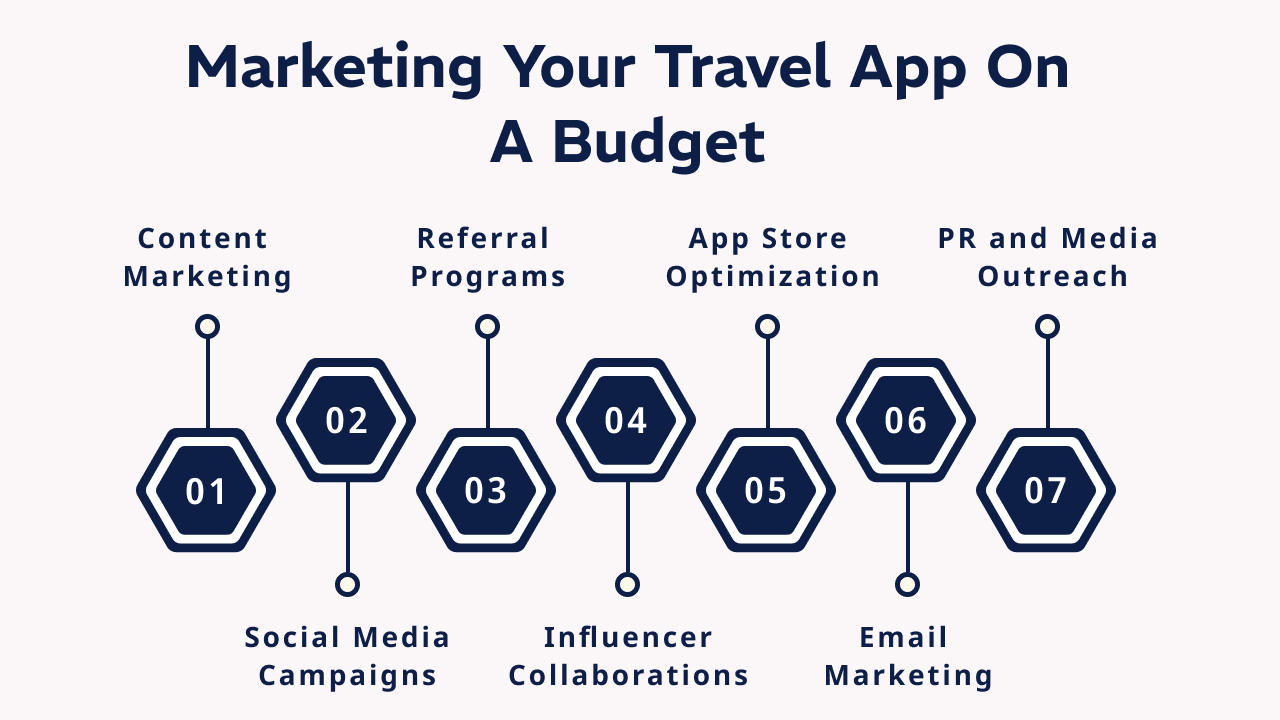
Even the best travel app needs a solid marketing strategy to gain users. Cost-effective tactics include:
- Content Marketing: Create engaging travel blogs, destination guides, and tips to attract organic traffic.
- Social Media Campaigns: Use Instagram, TikTok, and Facebook for travel inspiration posts and user engagement.
- Referral Programs: Encourage users to invite friends with rewards.
- Influencer Collaborations: Partner with travel bloggers and influencers for authentic promotion.
- App Store Optimization (ASO): Optimize your app’s title, description, and keywords to improve visibility.
- Email Marketing: Send personalized offers and updates to your user base.
- PR and Media Outreach: Highlight unique features or partnerships to gain press coverage.
Post-Launch: Scaling and Improving Your Travel App
After your initial launch, continuous improvement is key to staying competitive and growing your user base.
Focus on:
- User Feedback: Regularly collect reviews and surveys to identify pain points.
- Performance Optimization: Monitor app speed, uptime, and error rates.
- Feature Enhancements: Add requested features like multi-city trips, travel insurance, or offline mode.
- Localization: Expand language and currency support to new markets.
- Partnership Expansion: Add more suppliers and experiences.
- Data Analytics: Leverage AI to improve personalization and recommendation engines.
Scaling your infrastructure and team gradually keeps costs aligned with growth.
Case Studies: Lessons from Leading Travel Apps
Examining successful travel apps like Expedia, Booking.com, and Airbnb reveals valuable insights:
- Expedia focuses on a comprehensive inventory and user-friendly booking flow but invested heavily in backend infrastructure and partnerships over many years.
- Booking.com emphasizes ease of use, customer reviews, and competitive pricing through strong supplier relationships.
- Airbnb disrupted the market with a peer-to-peer model and community trust-building features.
Their successes stem from deep customer understanding, innovative technology, and strategic partnerships—principles you can adopt on a leaner scale.
Common Challenges and How to Overcome Them
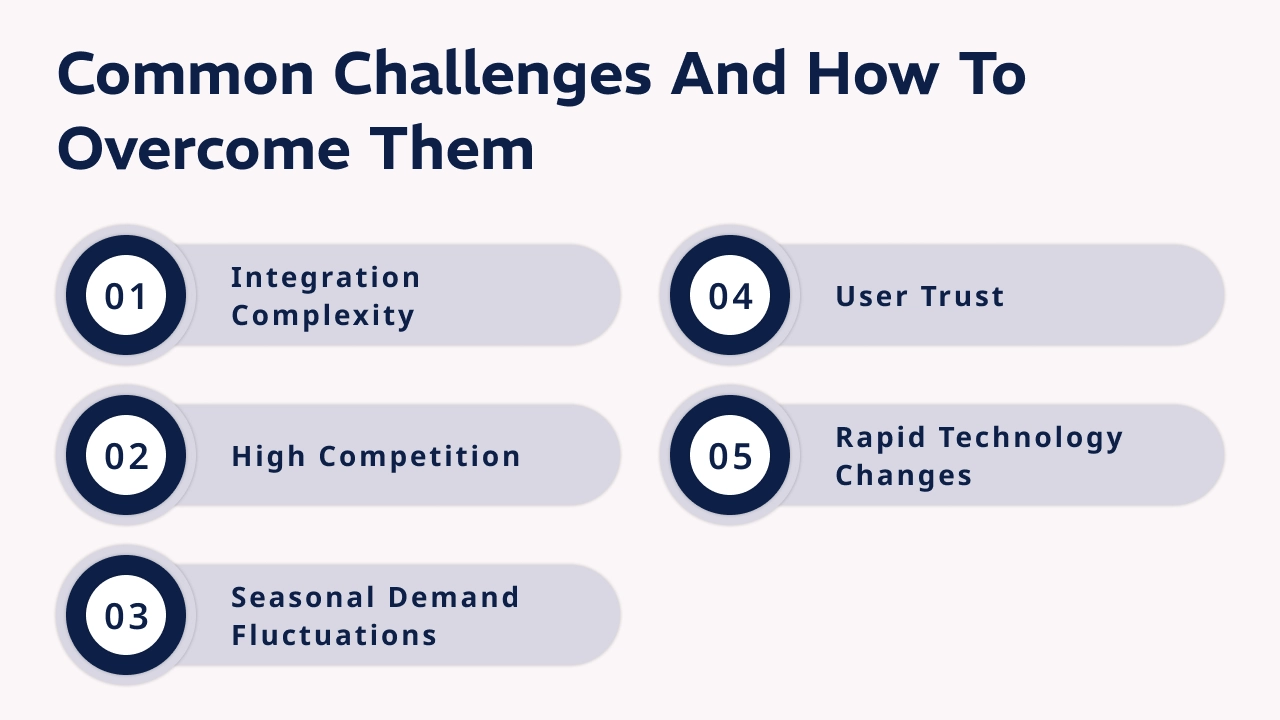
Building a travel app comes with challenges, including:
- Integration Complexity: Managing multiple APIs from airlines, hotels, and payment providers can be difficult. Use API management tools and hire experienced developers.
- High Competition: Differentiation is crucial. Focus on a niche or superior UX.
- Seasonal Demand Fluctuations: Use scalable cloud resources to manage traffic spikes.
- User Trust: Invest in security, transparent policies, and responsive support.
- Rapid Technology Changes: Stay updated on mobile OS versions, security patches, and emerging trends like AI and AR.
Being proactive and flexible ensures resilience.
Emerging Technologies Shaping Travel Apps in 2025
To future-proof your app, consider integrating or planning for:
- Artificial Intelligence: AI chatbots, predictive analytics, and smart itinerary planners.
- Augmented Reality: Virtual hotel tours, AR navigation for travelers.
- Blockchain: Transparent booking records and secure payments.
- Voice Search: Integrate voice assistants like Alexa and Google Assistant.
- Internet of Things (IoT): Smart luggage tracking and connected hotel rooms.
- 5G Connectivity: Faster data speeds enabling richer media and real-time updates.
Incorporating these technologies as your budget allows will keep your app competitive.
Why Choose True Value Infosoft as the Best App Development Company in India?
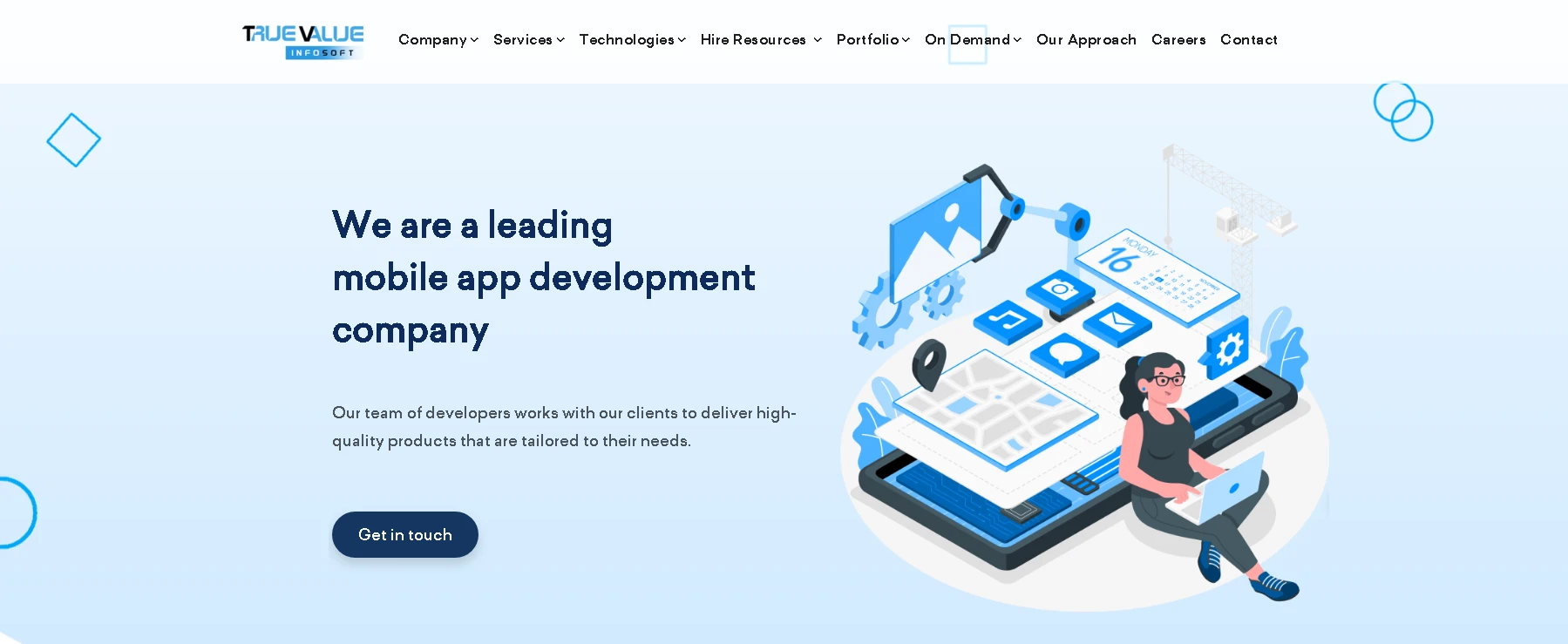
Choosing the right development partner can make or break your travel app project. True Value Infosoft stands out as the top app development company in India for several compelling reasons:
1. Proven Expertise in Travel App Development:
True Value Infosoft has extensive experience in building complex, scalable travel apps that deliver seamless user experiences. Their team understands the nuances of integrating travel APIs, payment gateways, and real-time booking systems to create robust platforms like Expedia.
2. Cost-Effective Solutions Without Compromise:
One of the biggest concerns for startups and businesses is managing costs without sacrificing quality. True Value Infosoft offers flexible engagement models and smart development strategies that optimize budgets while maintaining high standards of design, functionality, and security.
3. Skilled and Dedicated Development Team:
The company boasts a talented team of developers, UI/UX designers, testers, and project managers who are up to date with the latest industry trends and technologies in 2025. This ensures your app is future-ready, scalable, and user-friendly.
4. Agile Development Methodology:
True Value Infosoft follows agile practices, promoting transparency, regular communication, and iterative development. This approach allows faster delivery, easy incorporation of feedback, and ensures the final product perfectly matches your vision.
5. Comprehensive Post-Launch Support:
Building your app is just the start. True Value Infosoft provides continuous maintenance, updates, and technical support to keep your travel app running smoothly and evolving with user needs.
6. Strong Client Testimonials and Portfolio:
With numerous successful projects and satisfied clients globally, True Value Infosoft has earned a reputation for reliability and excellence in app development.
By partnering with True Value Infosoft, you get a trusted ally who will guide you from concept to launch and beyond — helping you develop a travel app like Expedia without breaking the bank.
Conclusion
Creating a travel app like Expedia in 2025 without breaking the bank is absolutely achievable with the right strategy. By understanding market needs, focusing on essential features, choosing the right tech stack, and prioritizing an MVP approach, you can launch a compelling travel platform that users love. Strategic partnerships, smart outsourcing, and ongoing improvements ensure scalability and sustainability.
Remember, travel is a dynamic industry fueled by user trust, convenience, and innovation. Invest in user experience, transparency, and technology to build an app that not only attracts customers but keeps them coming back for their next adventure.
FAQs
The cost of developing a travel app like Expedia varies depending on features, platform (iOS, Android, web), and development complexity. In 2025, a basic version with essential features can start from $30,000 to $50,000, while more advanced apps with AI-powered recommendations and real-time booking can cost upwards of $100,000. Partnering with a reliable company like True Value Infosoft can help optimize development costs while ensuring quality.
Key features include user registration and profiles, search filters for flights/hotels, booking and payment gateways, real-time availability updates, reviews and ratings, itinerary management, and push notifications. Advanced features may include AI-based recommendations, multi-currency support, and offline access.
Typically, it takes about 4 to 8 months to develop a travel app with standard features. The timeline depends on the app’s complexity and the development team’s expertise. True Value Infosoft follows agile methodologies to deliver high-quality apps within the planned timeframe.
Yes, by prioritizing core features for the initial launch and using scalable technology stacks, you can build a functional travel app within a limited budget. True Value Infosoft specializes in cost-effective solutions, helping startups and businesses get to market quickly without compromising user experience.
True Value Infosoft offers comprehensive post-launch support, including performance monitoring, bug fixes, security updates, and feature enhancements. This ensures your travel app stays competitive and adapts to changing user needs and market trends.
